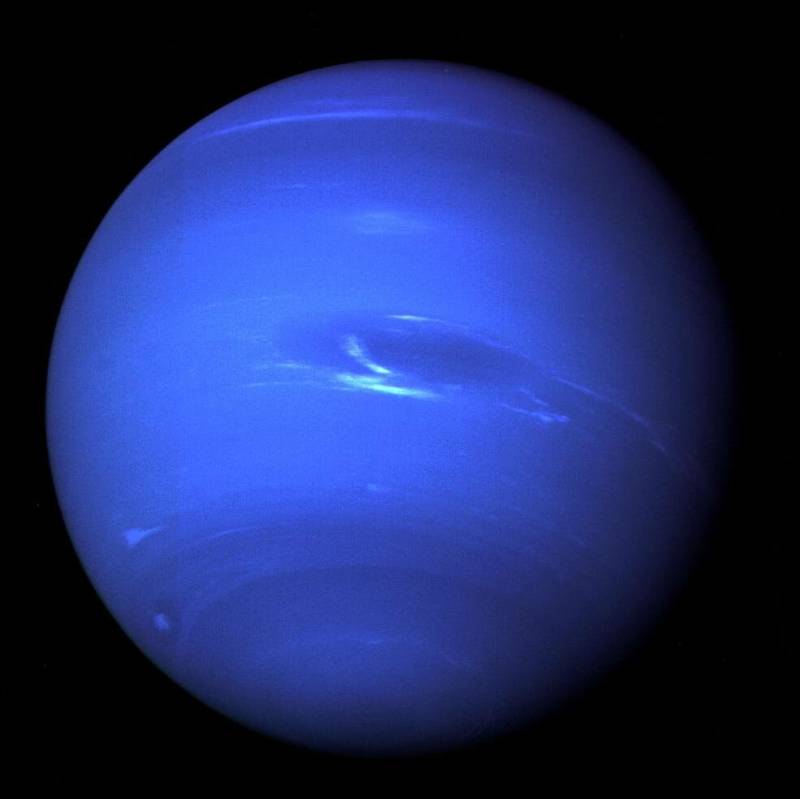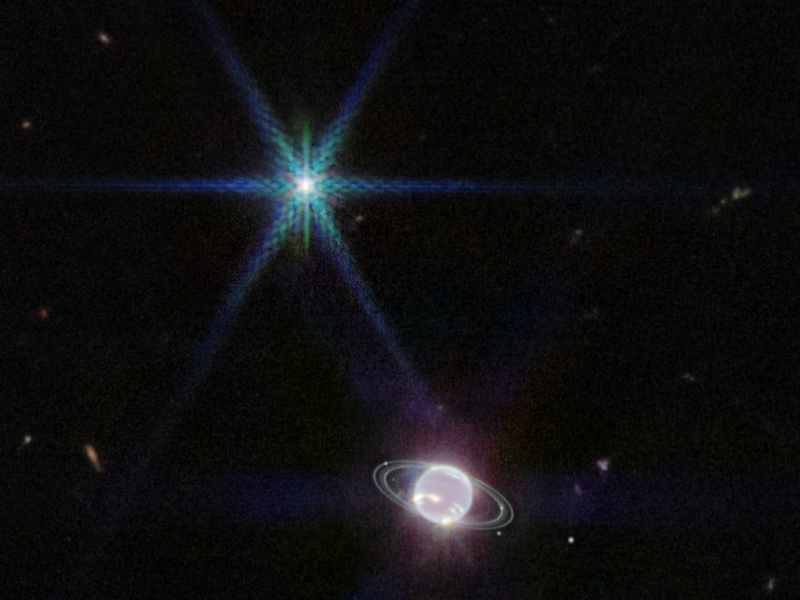The James Webb Space Telescope has wowed astronomers and everyday people alike with its stunning images of distant galaxies and Earth’s nearby neighbors.
Now the $10 billion deep space telescope has brought what NASA calls the clearest image of Neptune’s rings seen in more than 30 years.
The telescope delivered an image of the ice giant Neptune as well as seven of 14 of the known moons orbiting the planet, NASA said. The picture also shows faint dust bands around the planet.
“It has been three decades since we last saw these faint, dusty rings, and this is the first time we’ve seen them in the infrared,” said Heidi Hammel, a Neptune system expert and interdisciplinary scientist for the Webb project.
Hammel tweeted, “I ugy-cried when I saw THE FIRST JWST NEPTUNE IMAGES! “O M G – LOOK AT THE RINGS” I was yelling, making my kids, my mom, even my cats look.”
Not gonna lie. I ugy-cried when I saw THE FIRST JWST NEPTUNE IMAGES! "O M G - LOOK AT THE RINGS" I was yelling, making my kids, my mom, even my cats look. More than 20 years in the making, and JWST delivered. https://t.co/48bxjAlztC pic.twitter.com/qPtiW2hyFm
— Dr Heidi B. Hammel (@hbhammel) September 21, 2022
Neptune typically appears blue, attributed to methane in the atmosphere, but pictures from Webb’s infrared camera show the planet whiter in color. The new photo shows thin lines of beautiful light around Neptune, which NASA says are high-altitude methane-ice clouds reflecting sunlight.

One of Neptune’s moons, Triton, can also be seen in the photo. But, because of diffraction spikes in the image, one could easily mistake it for a distant star. Triton’s surface is covered in frozen, condensed nitrogen, which reflects an average of 70% of the sun’s rays, NASA said.

9(MDAxOTAwOTE4MDEyMTkxMDAzNjczZDljZA004))